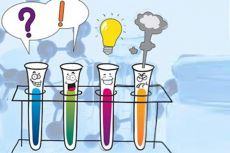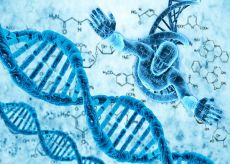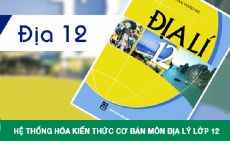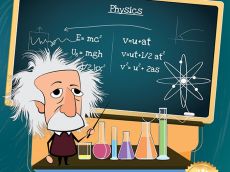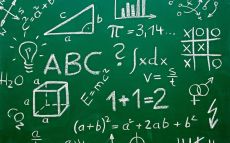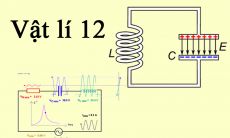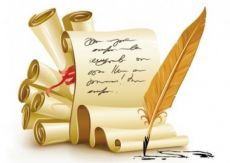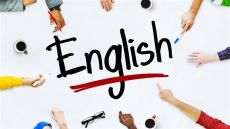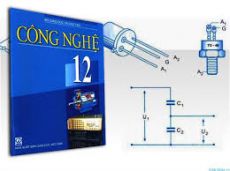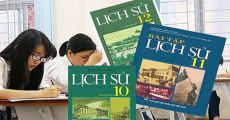Đề thi thử THPT QG năm 2021 môn Tiếng Anh
Trường THPT Bình Chánh Lần 2
-
Câu 1:
Indicate the word whose underlined part differs from the other three in pronunciation: helped, cleaned, played, runned
A. helped
B. cleaned
C. played
D. runned
-
Câu 2:
Indicate the word whose underlined part differs from the other three in pronunciation: tangle, dangerous, battle, calculate
A. tangle
B. dangerous
C. battle
D. calculate
-
Câu 3:
Indicate the word that differs from the other three in the position of the primary stress: deploy, maintain, focus, attain
A. deploy
B. maintain
C. focus
D. attain
-
Câu 4:
Indicate the word that differs from the other three in the position of the primary stress: uncertain, arrogant, familiar, impatient
A. uncertain
B. arrogant
C. familiar
D. impatient
-
Mark the letter A, B, C, or D on your answer sheet to indicate the correct answer to each of the following questions.
Câu 5:
I’m getting better at this job,______?
A. am I
B. am not I
C. isn’t I
D. aren’t I
-
Câu 6:
We can’t go along here because the road........................
A. is repairing
B. is repaired
C. is being repaired
D. repairs
-
Câu 7:
When asked about their preference for movies, many young people say that they are in favor..................science fiction.
A. for
B. of
C. in
D. with
-
Câu 8:
____________the homework, he was allowed to go out with his friends.
A. finishing
B. finish
C. to finish
D. having finished
-
Câu 9:
_____________, he received a big applause.
A. Finishing his presentation
B. Hi presentation has been finished
C. After he finishes his presentation
D. When finished his speech
-
Câu 10:
You look sad. Have you and Lisa_____________again?
A. gone out
B. gone down
C. with fallen out
D. let off
-
Câu 11:
Over the years, he gradually became impervious_____________his wife's comments about his chosen profession and in the end she stopped complaining.
A. about
B. for
C. of
D. to
-
Câu 12:
Yesterday, I_____________a serious accident while I_____________on the beach
A. see – am walking
B. saw - was walking
C. was seeing – wakled
D. have seen - were walking
-
Câu 13:
_____________had I left my house when they arrived.
A. Just
B. As soon as
C. Hardly
D. After
-
Câu 14:
Making mistakes is all_____________of growing up.
A. bits and bobs
B. chalk and cheese
C. part and parcel
D. from top to bottom
-
Câu 15:
_____________no taxi, they had to walk home.
A. There was
B. There being
C. Because there being
D. There is
-
Câu 16:
Her car needs_____________.
A. be fixed
B. fixing
C. to fix
D. fixed
-
Câu 17:
I've broken her favorite vase. I'm_____________.
A. taken for
B. made for
C. called for
D. done for
-
Câu 18:
Tim was_____________to the court for jury duty, but took a doctor's sick note with him and was excused.
A. pulled
B. assembled
C. summoned
D. requested
-
Câu 19:
- Did you remember to give Linda the money you owed her?
- Yes, I gave it to her_____________I saw her.
A. while
B. the moment
C. suddenly
D. once
-
Mark the letter A, B, C, or D on your answer sheet to indicate the word(s) CLOSEST in meaning to the underlined word(s) in each of the following questions.
Câu 20:
I knew she was only flattering me because she wanted to borrow some money.
A. teasing
B. threatening
C. praising
D. helping
-
Câu 21:
Emissions from factories and exhaust fumes from vehicles can have detrimental effects on our health.
A. beneficial
B. neutral
C. needy
D. harmful
-
Mark the letter A, B, C, or D on your answer sheet to indicate the word(s) OPPOSITE in meaning to the underlined word(s) in each of the following questions.
Câu 22:
Sorry, I can't come to your birthday party. I am snowed under with work now.
A. relaxed about
B. busy with
C. interested in
D. free from
-
Câu 23:
Tom may get into hot water when driving at full speed after drinking wine.
A. get into trouble
B. stay safe
C. fall into disuse
D. keep calm
-
Mark the letter A, B, C, or D on your answer sheet to indicate the option that best completes each of the following exchanges.
Câu 24:
Mai: "Don't forget to send your parents my regards." - Nga:" _____________."
A. It's my pleasure
B. Good idea, thanks
C. Nevermind
D. Thanks, I will
-
Câu 25:
- Mai: I'm terribly sorry. I forgot to call you last night.
- Nam: _____________.
A. I'll miss you very much if you leave here.
B. It's alright. We can talk about it today.
C. You're welcome!
D. Can you say it again? I can't think it is true.
-
Read the following passage and mark the letter A, B, C, or D on your answer sheet to indicate the correct word or phrase that best fits each of the numbered blanks from 26 to 30.
The Giant Panda
The giant panda is a beloved animal in China. It is regarded as a national (26) _____________. It is found mostly in southwestern China in Sichuan, Shaanxi and Gansu provinces. The giant panda is part of the bear family. It has a white coat with black trimmings around its eyes and on its ears, arms, and legs. Adult pandas can be 5 feet (1.5 meters) long and weigh (27) _____________to 330 pounds (150 kilograms). The giant panda leads a (28) _____________life, except during the mating season.
It lives in bamboo forests in the mountains. It can climb trees but lives mainly on the ground. (29) _____________most bears, the panda does not hibernate. It moves to low-lying areas during the winter in search of warmer temperatures. The giant panda has a mainly (30) _____________diet, eating mostly bamboo shoots and leaves. It also eats insects and small rodents. Giant panda breeding groups are small and isolated from one another.
Câu 26:
(26).....................
A. fortune
B. value
C. treasure
D. prize
-
Câu 27:
(27)...................
A. down
B. on
C. up
D. off
-
Câu 28:
(28)......................
A. solidarity
B. alone
C. friendless
D. unsociable
-
Câu 29:
(29).......................
A. Unlike
B. But
C. Owing
D. Unlikely
-
Câu 30:
(30)....................
A. vegetable
B. vegetate
C. vegetarian
D. vegetation
-
Read the following passage and mark the letter A, B, C, or D on your answer sheet to indicate the correct answer to each of the questions from 31 to 35.
Everybody likes to feel that she or he is special. Sadly, many of us grow up believing that we're not special at all. We wish that we could be more attractive or better at sports. We wish we had more money or nicer clothes. Like the Tin Man, the Scarecrow, or the Cowardly Lion from The Wizard of Oz, we think we're not good enough just as we are. In the film, The Tin Man wishes he had a heart. The Scarecrow wishes that he had a brain, and the Lion wants courage. Eventually, each of them realizes that he already has what he wants. Nearly all parents want us to be the best we can be. They occasionally attempt to encourage us to do better by comparing us to others. They mean well, but the message we usually get is that we're not good enough. We start to believe that the only way we can be special is by being better than somebody else, but we are frequently disappointed. There will always be somebody out there that is better than we are at something. There are a lot of people around who may not be as intelligent as we are but who are better at sports. Or they may not be as handsome, but they have more money. It is unthinkable for us to be better than everybody else all the time. Like the Tin Man, the Scarecrow, and the Cowardly Lion, we all need what we believe will make us better people. What we don't understand is that often we already have inside us the very things that we look for. Our parents often forget to tell us that we are special, that we are good enough just as we are. Perhaps no one told them when they were growing up, or maybe they just forgot. Either way, it's up to us to remind them sometimes that each of us, in our own way, is special.
Câu 31:
What is the writer's main purpose in writing the essay?
A. To talk about your family problems
B. To explain the importance of being yourself
C. To describe how intelligent we are
D. To suggest how people can change their way of life
-
Câu 32:
This essay was most likely written by_____________.
A. a young person
B. a coach
C. a teacher
D. a parent
-
Câu 33:
What does the writer say about our parents?
A. They always tell us that we are good enough
B. They never forget to tell us that we are special
C. They always tell us that we are special
D. They frequently forget to tell us that we are special
-
Câu 34:
The author of this essay believes that_____________.
A. we are all good enough just the way we are
B. the richer you are, the better you are
C. intelligent people are more special than others
D. not everyone can be special
-
Câu 35:
Which of the following would be the best title for this essay?
A. What Makes You Laugh?
B. What Makes You Happy?
C. What Makes You Special?
D. What Makes You stronger?
-
Read the following passage and mark the letter A, B, C, or D on your answer sheet to indicate the correct answer to each of the questions from 36 to 42.
Pittsburgh, Pennsylvania, is located where the Allegheny and Monongahela rivers unite to form the Ohio River. Its fascinating history began in 1758 when General John Forbes and his British and colonial army captured Fort Duquesne from the French and renamed it Fort Pitt, for the British statesman William Pitt the Elder. After an agreement between the Native American tribes and William Penn's family, settlers henan arrivinn Pittsburah was laid out (1764) by John Campbell in the area around the fort.
Following the American Revolution, the town became an outfitting point for settlers traveling westward down the Ohio River. Pittsburgh's strategic location and wealth of natural resources spurred its commercial and industrial growth in the nineteenth century. A blast furnace, erected by George Anschutz about 1792, was the forerunner of the iron and steel industry that for more than a century was the city's economic power. By 1850, it was known as the "Iron City". The Pennsylvania Canal and the Portage Railroad, both completed in 1834, opened vital markets for trade and shipping.
After the American Civil War, great numbers of European immigrants swelled Pittsburgh's population, and industrial magnates such as Andrew Carnegie, Henry Clay Frick, and Thomas Mellon built their steel empires there. The city became the focus of historic friction between labor and management, and the American Federation of Labor was organized there in 1881. By 1900, the city's population had reached 321,616. Growth continued nearly unabated through World War II, and during the war years, Pittsburgh was a boom town.
During this period of economic and population growth, Pittsburgh became a grimy, polluted industrial city. After the war, however, the city undertook an extensive redevelopment program, with emphasis on smoke-pollution control, flood prevention, and sewage disposal.
In 1957, it became the first American city to generate electricity by nuclear power. By the late 1970s and early 80s, the steel industry had virtually disappeared, but Pittsburgh successfully diversified its economy through more emphasis on light industries and on such high-technology industries as computer software, industrial automation (robotic), and biomedical and environmental technologies.
Câu 36:
In the mid-eighteenth century, what two countries wanted to control the area now known as Pittsburgh?
A. England and the United States
B. England and France
C. England and Germany
D. England and Pennsylvania
-
Câu 37:
When did settlers begin arriving in Pittsburgh?
A. After an agreement between the Indians and the Penn family
B. After the Allegheny and Monongahela rivers united
C. After the British captured Fort Pitt
D. After the American Revolution
-
Câu 38:
What became the most important industry in Pittsburgh following the American Revolution?
A. The shipping industry
B. The iron and steel industry
C. The outfiting industry
D. The computer software industry
-
Câu 39:
According to the passage, who moved to Pittsburgh in great numbers after the Civil War?
A. Native American tribes
B. British soldiers
C. Confederate veterans
D. European immigrants
-
Câu 40:
Which of the following phrases is closest in meaning to the phrase "focus of historic friction" in the passage?
A. Center of an important conflict
B. Museum for historical photographs
C. Famous furniture factory
D. City of many professional sports
-
Câu 41:
According to the passage, what can be inferred about Pittsburgh's population during the World War II?
A. It did not grow
B. It declined
C. It grew enormously
D. It stayed the same
-
Câu 42:
Between the Civil War and World War II, all of the following happened in Pittsburgh EXCEPT_____________.
A. Automobile factories produced most of the transportation for Americans
B. Carnegie, Frick, and Mellon created their steel empires
C. The American Federation of Labor was organized
D. The air became seriously polluted, and the buildings were dirty
-
Mark the letter A, B, C, or D on your answer sheet to indicate the underlined part that needs correction in each of the following questions.
Câu 43:
(A) While highly prized (B) for symbolizing good luck, (C) the four-leaf clover is (D) rarity found in nature.
A. While
B. for
C. the
D. rarity
-
Câu 44:
The president, (A) with his wife and children, (B) are at home watching the (C) news (D) on television.
A. with his wife
B. are
C. news
D. on television
-
Câu 45:
Students should (A) be encouraged to discuss critically (B) about the information (C) that they (D) are given.
A. be encouraged
B. about
C. that
D. are given
-
Mark the letter A, B, C, or D on your answer sheet to indicate the sentence that is closest in meaning to each of the following questions.
Câu 46:
Kelly ran into her former teacher on the way to the cinema yesterday.
A. Kelly caused an accident to her teacher while she was going to the cinema.
B. Kelly's car ran over her teacher on the way to the cinema.
C. Kelly happened to meet her teacher while she was going to the cinema.
D. Kelly's teacher got run over whole she was going to the cinema.
-
Câu 47:
"If I were you, I'd buy that house," Ms. Hoa said to Ms. Lan.
A. Ms. Hoa promised Ms. Lan that she would buy that house.
B. Ms. Hoa advised Ms. Lan to buy that house.
C. Ms. Hoa suggested Ms. Lan to buy that house.
D. Ms. Hoa forced Ms. Lan to buy that house.
-
Câu 48:
You should have persuaded him to change his mind.
A. You should persuade him to change his mind.
B. You didn't persuade him to change because of his mind.
C. It was essential to persuade him to change his mind but you didn't.
D. You persuaded him to change his mind but he didn't listen.
-
Mark the letter A, B, C, or D on your answer sheet to indicate the sentence that best combines each pair of sentences in the following questions.
Câu 49:
He didn't take his father's advice. That's why he is out of work.
A. If he had taken his father's advice, he would not have been out of work.
B. If he took his father's advice, he would not be out of work.
C. If he had taken his father's advice, he would not be out of work.
D. If he takes his father's advice, he will not be out of work.
-
Câu 50:
My brother attended the meeting. His friend attended the meeting, too.
A. My brother attended the meeting, and so did his friend.
B. My brother attended the meeting, but his friend didn't.
C. Neither my brother nor his friend attended the meeting.
D. Either my brother or his friend attended the meeting.



